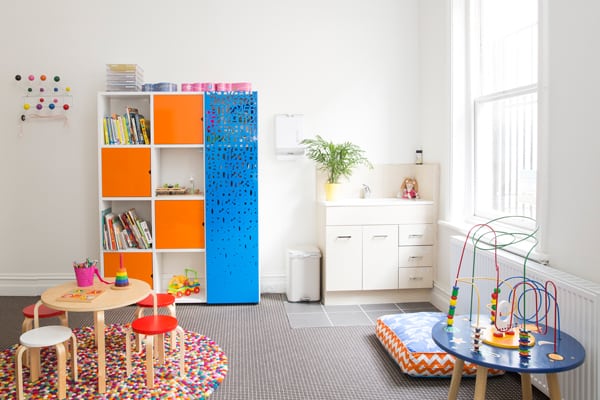
PROFESSOR PAUL MONAGLE
MBBS, MSc., MD, FRACP. FRCPA, FCCP
Paediatric Haematologist
Paul has a broad range of clinical interests in non malignant haematology from neonates to late adolescence. He specialises in thrombosis, thrombophilia and anticoagulation, and has considerable experience in diagnosis and treatment of bleeding disorders, anaemia(including nutritional deficiencies, haemoglobinopathies and haemolysis), thrombocytopenia(congenital and acquired) and neutropenia. Ie red cell, platelet and white cell as well as plasma disorders. He sees these disorders in otherwise well children or as part of complex multisystem health problems.
Background and experience
Paul is a paediatric haematologist with over 20 years experience in clinical non malignant haematology. He is a past Stevenson Chair and Head of Department of Paediatrics, (for 8 years), and prior to that 3 years as Head of Pathology, University of Melbourne. He continues to work as a Professor of Paediatrics, University of Melbourne with teaching and research responsibilities. Within the Royal Children’s Hospital he spent 5 years as director of laboratory services, 12 years as Head of Haematology, and 2 years as Acting Head of Children’s Cancer Centre. He continues to work as a clinical haematologist at RCH. He is group leader of the Haematology research group at the Murdoch Children’s Research Institute. Paul has published 4 textbooks on paediatric haematology, written 40 chapters in major international textbooks; and has over 350 journal publications, with over 10000 citations. In 2018 he was the Barry Firkin Orator for the Haemostasis and Thrombosis society of Australia and New Zealand.
Paul grew up in Melbourne and completed his medical degree at Monash University with honours. He then undertook his training as a paediatrician and haematologist at the Monash Medical Centre and the Royal Children’s Hospital. From 1996 to 1998, he completed a Masters of Science (Health Research Methodology) while completing a research fellowship at McMaster University and further clinical training at the Hospital for Sick Kids, Toronto, before returning to the Royal Children’s Hospital Melbourne. He is one of the youngest ever winners of the RCH Gold medal for services to children.
Paul is internationally recognised for his work in paediatric haemostasis and thrombosis and has chaired multiple international guideline panels, and currently holds leadership roles in a number of international societies, and internationally sponsored studies. He is previous a member of federal QUPC (Quality use in pathology committee), Victorian CCOPMM (Consultative Council of Obstetric and Paediatric Morbidity and Mortality), and boards of Murdoch Childrens Research Institute and the Royal Children’s Hospital Foundation. Paul is an active teacher, being involved in many aspects of undergraduate and post graduate teaching, as well as directly supervising many research students. He has supervised 11 PhD students to completion, and multiple clinical trainees, many of whom now hold leadership positions in haematology units around Australia and the world. Despite his many roles and activities he has never lost the passion for direct patient care and has maintained clinical care of patients at the heart of his professional career.
Practice Philosophy
Paul believes health care is based on partnerships, between the children, their families and the health care team. He believes the traits of a good doctor are being careful, caring, conscientious, with good communication and above all, humility. Remembering that the patient is always the most important person in the room is key. The outcomes that matter to the patient are the outcomes that matter and these can only be understood by listening.
As a husband of over 30 years and father of 4 (now adult) children, and now a fussing grandparent, Paul has seen health care from the other side of the fence and understands the anxiety of having a sick child, and the importance of being able to voice concerns. He continues to learn from the children and families he sees.
When not at work Paul cooks, gardens and tends to his bees, spending time with his wife, children grandchildren and extended family, not to mention, the family dog, Billie.

